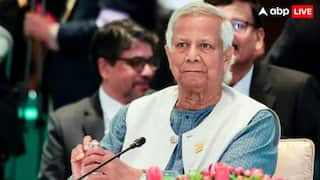BJP Parliamentary Board Rejig: Eye On 2024 LS Elections And Backward Votes?

The long-awaited parliamentary board rejig by the Bharatiya Janata Party (BJP) has been finally effected by party president JP Nadda. The changes made are a clear reflection of the changing character of the BJP in the last one decade as it seeks to consolidate its position among the subaltern castes and communities. The changes are in continuity with the party’s efforts to expand both geographically and socially.
BJP in the pre-Narendra Modi era operated through a mechanism where state leadership was dominated by backward and intermediary caste leaders. If the central parliamentary board is considered the highest decision-making body, it was dominated by upper caste leaders. So, for every Atal Bihari Vajpayee in the central parliamentary board, there was one Kalyan Singh in Lucknow who would fetch votes from the party from numerically dominant backward communities.
For every Pramod Mahajan on the board, there was one Gopinath Munde, another OBC leader from Maharashtra who built BJP from the scratch in Marathwada and north Maharashtra. For every Narendra Modi in Gujarat, there was LK Advani on the parliamentary board. And finally, for every BS Yediyurappa in Bengaluru, there was one Ananth Kumar in this elite group.
The regional leaders, mostly from intermediary and backward caste groups, sustained the BJP in electoral battles. At the centre, however, the party was run predominantly by upper caste leadership.
At one point in time, when Nitin Gadkari was the BJP president, almost half of the parliamentary board members were Brahmins — Gadkari himself, Vajpayee, Ananth Kumar, Murli Manohar Joshi, Arun Jaitley and Sushma Swaraj. Advani, Rajnath Singh, Ram Lal, and Venkaiah Naidu were the other upper caste members. Thawar Chand Gehlot was the only Dalit face in the all-powerful BJP decision-making body.
Interestingly though, in 2007, then BJP president Rajnath Singh had dropped Narendra Modi, then chief minister of Gujarat, from the parliamentary board. Six years later, ahead of the 2014 Lok Sabha polls, Modi made a comeback to the highest decision-making body of the party in what was the precursor to his declaration as the BJP’s PM candidate.
ALSO READ: BJP Recasts Its Parliamentary Board. See Full List
Strong Message To The Communities
In the last seven years, the parliamentary board has not been an integral part of the BJP’s decision-making process. Most of the top leaders from the Vajpayee-Advani era have either been benched or have passed away.
In re-casting its lot after a very long interval, the BJP has sought to send across a strong message to the communities it has been able to win over in the last one decade — especially the backward classes that constitute more than 50 percent of the total electorate in the country.
With Karnataka elections on the cards, former CM and Lingayat strongman BS Yediyurappa has been elevated. The BJP, as it plans to take on the Telangana Rashtra Samithi in the next assembly polls, has promoted its OBC Morcha chief K Laxman.
The lone woman member in the new parliamentary board, Sudha Yadav, is also from the OBC community.
From Punjab, where it faces a tough challenge after parting ways with old aly Akali Dal, the party has sought to induct OBC leader Iqbal Singh Lalpura to the parliamentary board.
BJP’s success in the 2014 Lok Sabha polls was also attributed to Modi’s ability to very subtly play up his caste credentials to reach out to backward communities in the heartland state. Modi could do this without disrupting his party’s rapport with its core upper-caste voters.
With the sudden change of guard in Bihar, there is a possibility that the party may face a challenge from a backward leader from the heartland state in 2024. Nitish Kumar’s latest somersault has triggered speculations that he could be the opposition candidate for the top post.
The BJP, it seems, is bracing itself for a possible challenge. For the party knows that the battle for 2024 would be fought in the heartland states where backwards, and not upper castes, can turn the elections.
The author is an independent journalist who writes on politics and policy.
[Disclaimer: The opinions, beliefs, and views expressed by the various authors and forum participants on this website are personal and do not reflect the opinions, beliefs, and views of ABP News Network Pvt Ltd.]



























